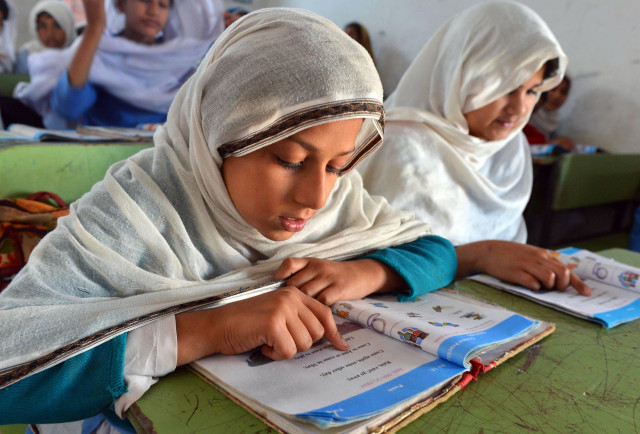K-P moves to end discrepancies in teachers’ salaries
This is part of Rs593 billion reforms to provide quality education

PHOTO: PAKISTANTODAY
This is part of the Rs593 billion reforms that the government has prioritised for quality education.
Under the new budgeting and expenditure system, a disbursing officer (DDO) code will help track all payments made by the education department.
Around 464 higher secondary schools and 2,158 high schools out of 27,121 public sector schools are presently being tracked.
This programme is being rolled out across the province so that there will be a transparent real-time system available on an online portal for all schools.
Budget 2017-18: K-P govt to allocate Rs138b for education
Khyber-Pakhtunkhwa Minister for Elementary and Secondary Education Muhammad Atif Khan said: “This will help end the culture of ghost teachers and teacher absenteeism.”
There will be enhanced financial equity among school. The mechanism acts as a viable planning tool on a single, standardised platform. It also provides improved monitoring of all financial transactions and helps with collaboration among stakeholders.
“We are very pleased with this intervention because it will lead to an end to all embezzlement, misappropriation and irregularities that have happened in the past and will ensure full public disclosure of essential fiscal and personnel data of each school,” said Atif Khan.
Given its size and proximity to the K-P provincial capital, Karak served as the ideal pilot city. Within four months of its launch, more than 30 ghost teachers were identified in Karak district. To scale this up across the province, two committees have been recommended both at the district and province levels.
Within a few months the pilot project will extend to Swat, Dera Ismail Khan, Bannu, Abbottabad, Charsadda, Nowshera, Chitral and Battagram.













COMMENTS
Comments are moderated and generally will be posted if they are on-topic and not abusive.
For more information, please see our Comments FAQ